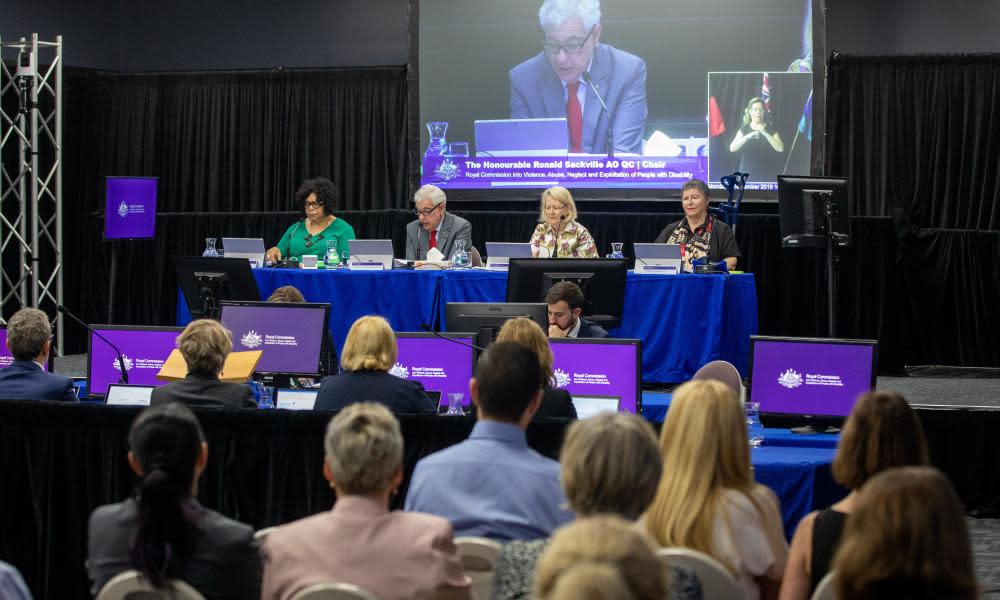Being Aboriginal with a disability a 'double whammy', royal commission told

A Wiradjuri woman who is the full-time carer for two adult sons with intellectual disabilities has told the royal commission that the “double whammy” of being Aboriginal with a disability has pushed her family into homelessness.
Narelle Reynolds’ sons, Justin, 38, and Luke, 33, have Fragile X syndrome – a genetic condition that causes intellectual disabilities. Luke also has epilepsy and has been treated for thyroid cancer. In childhood, they were misdiagnosed as having autism.
In 2015, Luke’s health began to deteriorate. In 2017 he was diagnosed with thyroid cancer and had surgery and chemotherapy. In order to access better medical and more culturally appropriate services, Reynolds moved the family from Dubbo to Coffs Harbour but has struggled to find affordable housing.
“In the last 12 months I’ve lived in a tent, in a shed and a cabin. Everything has been short term. And it is hard on my sons, because they don’t like change.
“So it has been difficult. However, the goal, why I’m there, is to get answers. So I figured sometimes the negative – I can deal with it. It’s painful but it’s just the way it is.”
Reynolds told the commission her family of seven is currently living in a one-bedroom cabin in a caravan park. While funding for Luke and Justin has tripled under the NDIS, she said there are no culturally appropriate services available for their specific needs.
She said the NDIS needs Aboriginal liaison officers who can work with carers and people with disability, to help them access services.
“Most of the time they need to have a familiar face, a black face, just to feel like they’re safe to talk to. There needs to be someone employed by NDIS to help that gap.”
Reynolds told the commission a lot of Aboriginal people with disability don’t remain connected with or continue to seek services from the NDIS.
“I’ve actually supported a few family members, and my daughter as well, with my grandson [Ryan, 11, also has fragile X]. Sometimes bureaucrats know it all but they don’t. Sometimes when you’re sitting on the other side of the table, I generally get a feel if you’re listening to me or not.
“Aboriginal people just shut down. We just don’t talk, because what’s the point of talking to you when we know you’re not listening?”
Dr Scott Avery from the First Peoples’ Disability Network told the commission about his research into the causes and effects of the “double disadvantage” experienced by Aboriginal people with disability.
“They had a right to care, they had a need for care, but that access to care was denied to them at a critical point, and because it was denied that has led to quite catastrophic events, and their health and wellbeing being threatened and jeopardised.”
Avery cited the example of an Aboriginal man living “not far from here” with a cognitive impairment.
“His public presentation of his disability, coupled with the negative stereotypes about Aboriginal people and drinking, means he gets passed off as drunk. So he can’t go shopping. He can’t catch public transport.
“You put those two things together, his life is basically taken away from him. He’s unable to participate.
“You can experience racism, you can experience ableism but there are some times when those two come together.”
Avery said the community and the royal commission should hold the healthcare system accountable for “institutional prejudice that sits within the healthcare system, in which highly qualified healthcare practitioners can just pass people off with need as being drunk or faking it.”
“When you have complicated, complex health needs you really need everyone to buy in and take responsibility, but you have a situation where actually no one’s taking responsibility.”


